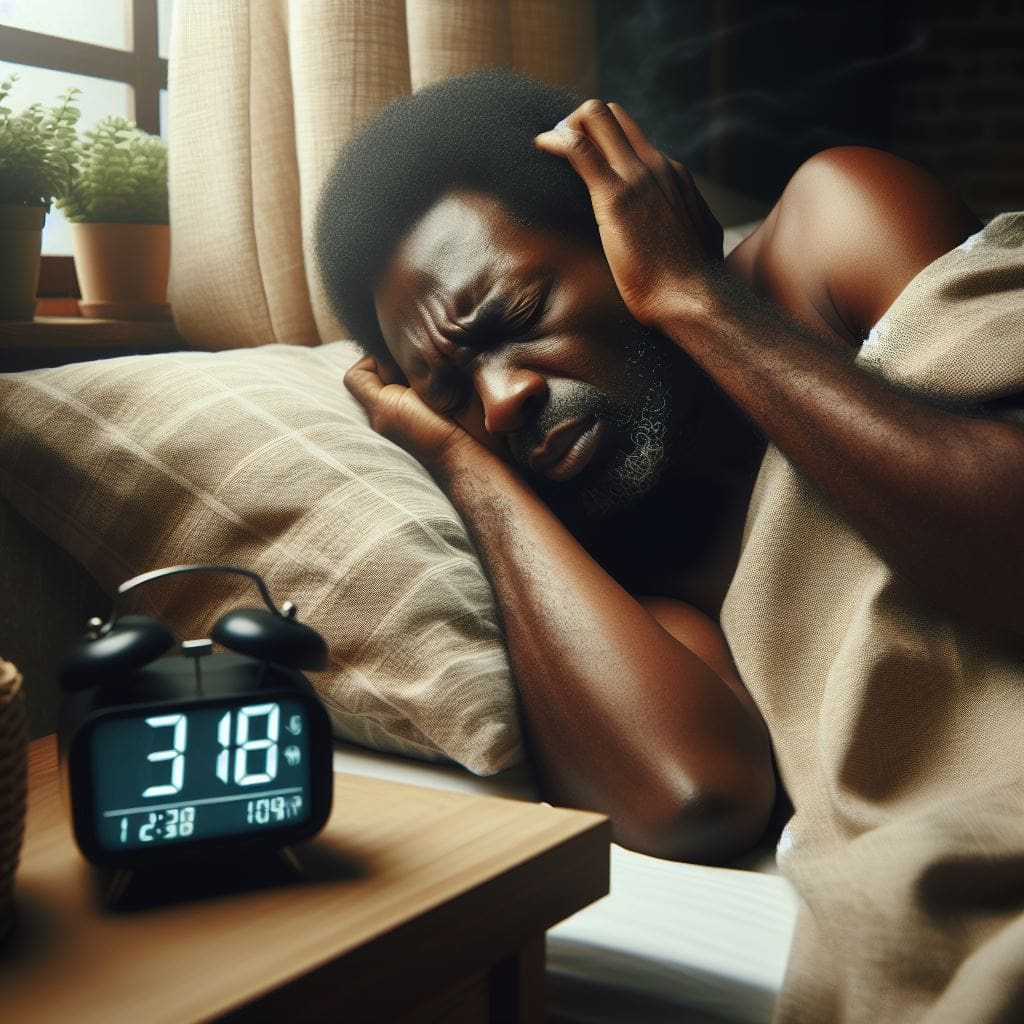
“The best cure for insomnia is to get a lot of sleep.”
— W. C. Fields
Anyone who’s ever stared at the ceiling at 3 am knows the frustration of insomnia. It’s that pesky inability to fall asleep or stay asleep, leaving you feeling drained and grumpy the next day.
Insomnia isn’t just an annoyance; it can significantly impact your quality of life, affecting your mood, energy levels, and overall health. In this article, we’ll delve into what insomnia is, its causes, symptoms, and provide some helpful tips for overcoming it.
What is Insomnia?
Insomnia is a sleep disorder characterized by difficulty falling asleep, staying asleep, or both, despite having the opportunity for sleep. It can lead to a range of problems, including daytime fatigue, irritability, difficulty concentrating, and impaired performance at work or school.
Insomnia simply means trouble sleeping. It can be occasional, happening every now and then, or chronic, disrupting your sleep most nights and it affects people of all ages. There are two main types:
- Trouble falling asleep: You toss and turn for what feels like forever before drifting off.
- Trouble staying asleep: You wake up frequently during the night and struggle to get back to sleep.
Causes of Insomnia
Several factors can contribute to the development of insomnia, including:
1. Stress and Anxiety:
Everyday stressors, such as work deadlines, relationship issues, or financial worries, can keep your mind racing at night, making it difficult to relax and fall asleep.
2. Poor Sleep Habits:
Irregular sleep schedules, excessive napping during the day, or engaging in stimulating activities (like watching TV or using electronic devices) before bedtime can disrupt your body’s natural sleep-wake cycle.
3. Medical Conditions:
Certain medical conditions, such as chronic pain, asthma, arthritis, or gastrointestinal disorders, can interfere with sleep. Additionally, mental health disorders like depression and anxiety are closely linked to insomnia.
4. Medications:
Some medications, including antidepressants, stimulants, and certain asthma medications, can disrupt sleep patterns as a side effect.
5. Environmental Factors:
Noisy environments, uncomfortable temperatures, or an uncomfortable mattress and pillow can make it challenging to get a good night’s sleep.
6. Travel and Jet Lag:
Adjusting to a new time zone can throw your body’s natural sleep-wake cycle (circadian rhythm) out of whack.
Symptoms of Insomnia
The symptoms of insomnia can vary from person to person but may include:
- Difficulty falling asleep at night
- Waking up frequently during the night
- Trouble getting back to sleep after waking up
- Waking up too early in the morning
- Feeling unrefreshed upon waking
- Daytime sleepiness, fatigue, or irritability
- Difficulty concentrating or remembering things
Fighting Back Against Insomnia
If you’re struggling with insomnia, there are several steps you can take to improve your sleep quality:
1. Establish a Bedtime Routine:
Create a relaxing bedtime routine to signal to your body that it’s time to wind down. This could include activities like reading a book, taking a warm bath, or practicing relaxation techniques such as deep breathing or meditation.
2. Maintain a Consistent Sleep Schedule:
Go to bed and wake up at the same time every day, even on weekends. This helps regulate your body’s internal clock called the circadian rhythm and can improve the quality of your sleep over time.
3. Make your bedroom a sleep haven:
Make sure your bedroom is conducive to sleep by keeping it cool, dark, and quiet. Invest in a comfortable mattress and pillows, and consider using blackout curtains or white noise machines to block out any disturbances.
4. Limit Stimulants and Electronics Before Bed:
Avoid caffeine, nicotine, and alcohol in the hours leading up to bedtime, as these substances can interfere with sleep. Additionally, try to limit screen time on electronic devices such as smartphones, tablets, and computers, as the blue light emitted by these devices can disrupt your body’s natural sleep-wake cycle.
5. Seek Professional Help if Needed:
If your insomnia persists despite making lifestyle changes, consider seeking help from a healthcare professional. They can help identify any underlying medical or psychological issues contributing to your sleep problems and recommend appropriate treatment options, such as therapy or medication.
Conclusion
Insomnia is a common sleep disorder that can have a significant impact on your well-being. By understanding the causes and symptoms of insomnia and implementing healthy sleep habits, you can improve your sleep quality and overall quality of life.
If you continue to struggle with insomnia, don’t hesitate to seek help from a healthcare professional who can provide personalized guidance and support.
Remember, getting a good night’s sleep is essential for your physical and mental health, so prioritize self-care and make sleep a priority in your daily routine. With patience and persistence, you can overcome insomnia and enjoy restful, rejuvenating sleep once again.



